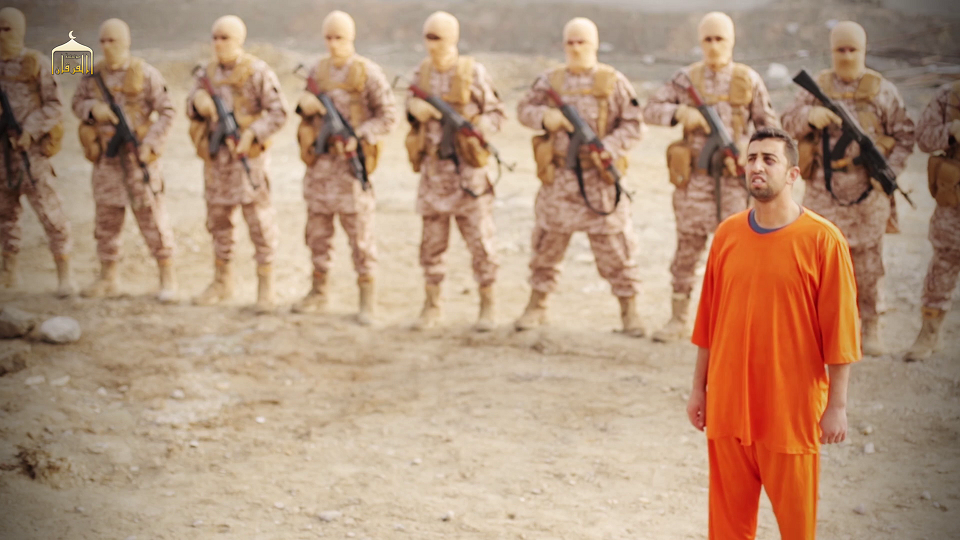OPINION-The crisis in Syria is more protracted and dangerous for Jordan than the incident of the burning to death of pilot Maaz Al-Kasaasbeh. This latter crime was hideously carried out on purpose in order to stir an Arab and international uproar and provoke the Jordanians in general. The crime reflects the intentions of the self-ascribed Islamic State (IS) and vision for Jordan, which has been living through the crisis of its northern neighbor, Syria, since the very beginning.
I think Jordan has an important role it hasn’t yet played in Syria. Although it has avoided engaging itself in the struggle, the Syrians have not allowed Jordan to remain distant from the crisis. If the Syrian regime is well-aware that the borders with Jordan are a regional red line and will thus not dare cross them, ISIS thinks Jordan is the best gain it can make.
Jordan is a country with a pure Arab Sunni environment. It neighbors Israel and, geographically speaking, it complements the southern path of the IS, which is present in southwest Iraq. The so-called Islamic State does not care about attacking areas where Sunnis are a minority or where Sunnis are weak — like Iraqi Shiite provinces or Syrian Alawite ones. It wants to take over areas, which it thinks it can subjugate and turn into a reservoir of manpower that supports it on the sectarian level even if they refuse its political system. One can follow up on the path of the IS from Iraq to Syria to see how the organization thinks and progresses. I don’t want to expand the diagnosis of IS’ motives but it’s certain that the organization considers Jordan an enemy even greater than the Syrian regime, which opened conduits for it to strike at the opposition Free Syrian Army (FSA) — an enemy to both sides.
Jordan didn’t play its role in the past four years of the Syrian war because of its clear stance against getting involved in the conflict. However, getting involved is not an option when it comes to a neighboring country that can hear the Syrian regime’s shelling of the Syrian towns of Deraa and that hosts more than half a million Syrian refugees — a significant population that is challenging on the financial, political and security levels. At a later point, we may see that Jordanian forces may have to — against their will — get engaged in deciding the situation in Syria and support one party against another. It’s no secret that the opposition FSA gathers in north Jordan, and I mean inside the southern Syrian borders, which it almost completely controls. But it’s not yet an armed force that has enough advanced weapons to take over the capital, Damascus, which is only 100 kilometers away from Deraa, or an hour’s drive.
And if Jordan, and the other countries backing the FSA, had previously decided to take the risk of enabling the FSA to conquer Damascus, we may have not reached this complicated and dangerous phase in which terrorist organizations have emerged to become the biggest threat confronting the world. Can Jordan, Iraq and the rest of the region’s countries tolerate the repercussions of the Syrian crisis along with all these terrorist organizations and the Syrian regime’s criminality for another 10 years? Can one only rely on the northern front, near Turkey, which Al-Nusrah Front, the other terrorist organization, dominates? This makes Jordan an almost single gate.
We saw how it was difficult to liberate a town like Kobane from the IS fighters and how the terrorist organization threatened the security of the Kurdistan region, which had been fortified for two decades. The IS continues to occupy two major Iraqi cites — Mosul and Kirkuk — and all Iraqi, American and Iranian attempts have failed to liberate them. With all these givens, we cannot underestimate the threat of the IS and categorize its actions as mere separate terrorist operations as, on the contrary, it’s capable of invading, dominating, settling and expanding. The IS’ hideous manner of murdering the Jordanian pilot was basically aimed to intimidate the Jordanians and others. The video of his murder has been viewed just enough to instill fear and deliver the message that the arrival of the organization’s fighters alone is enough to terrify civilians — just like what happened in the Iraqi cities they attacked and quickly seized. ARABNEWS






 WhatsApp us
WhatsApp us 

